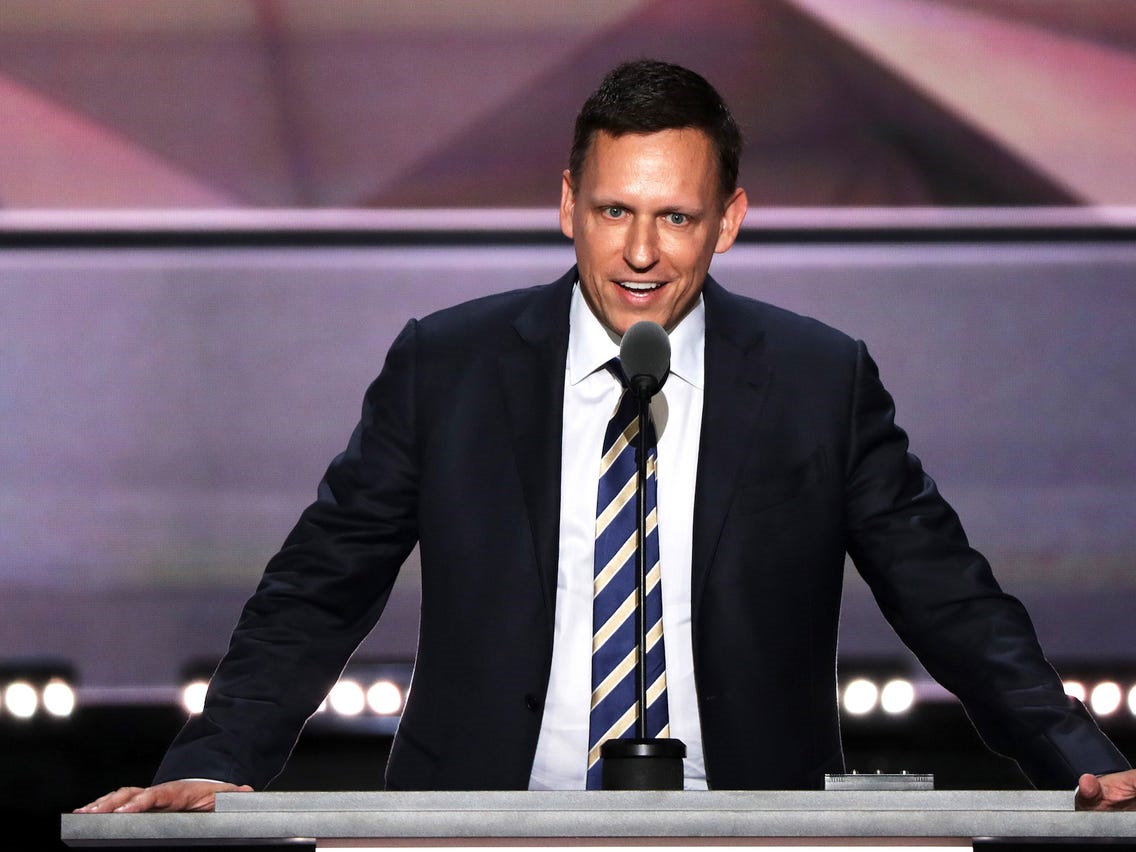
Over the course of more than 20 years of success in Silicon Valley, Peter Thiel has had a hand in technology companies that are now ingrained in everyday American life. The German American entrepreneur made his first impact in 1999 when he co-founded PayPal, which was purchased by eBay three years later for $1.5 billion. In 2004, he used his gains to become the first outside investor in Facebook, wisely picking up 10% of the young company, an investment that ultimately netted Thiel $1 billion.
As a founding partner of the aptly-named Founders Fund, a Bay Area venture capital firm, he made significant seed contributions to companies like Airbnb, Spotify, and SpaceX, in addition to creating Palantir Technologies, a big data software company specializing in the national security sector. With such a winning record in the tech world, it’s hard to believe Thiel was once on a very different career path, having attended Stanford University and achieved both a Bachelor’s and Law Degree.
Since achieving success and notoriety, Thiel has been an outspoken contrarian, especially among the typically-liberal Silicon Valley. While a student at Stanford, he co-founded The Stanford Review, a conservative campus publication and an organization Thiel continues to quietly mentor. After earning his Juris Doctor degree from Stanford Law School, he relocated to the East Coast to pursue a brief legal career, followed by a similarly short stint in finance. But Thiel’s time in Palo Alto had exposed him to the burgeoning internet technology boom, and he was drawn back to the Bay Area. After raising the capital to create his first venture fund, his streak of smart investments began with PayPal, and he remains one of the most successful startup pickers in the industry.
Although he has questioned the efficacy of advanced academics (he famously established a fellowship encouraging students to pursue a startup instead of college), Thiel retains a strong connection with Stanford. In 2014, he returned to campus to share his advice with future entrepreneurs of Stanford, encouraging them to pursue their dreams, especially if they are against the grain of common norms. He has also taught at the university as a guest faculty member, leading courses on startups as well as German geopolitics. Ever the outsider, Peter Thiel continues to keep Palo Alto, and the rest of the tech world, guessing where he will find his next great venture.
